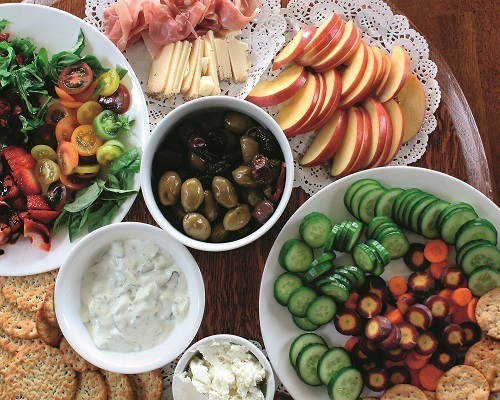
A correct choice of the foods we eat directly influences our health and well-being today and in the future.
The saying “you are what you eat” is not in vain. Eating healthy is essential for good health and well-being. Food directly influences your body, mind and spirit. A good diet brings unity, balance and harmony to the being. This brings physical, mental and spiritual health and well-being (energy levels), a better quality of life, a more positive and open disposition to flow, as well as an ideal weight.
It is proven that a healthy and balanced diet that meets the nutritional requirements necessary for the proper functioning of the body helps prevent the risk of many diseases. Good health starts with a healthy diet. A healthy diet is sufficient in energy and nutrients, balanced, varied and adapted to physiology.
A HEALTHY FOOD
IMPROVEMENT functioning of the immune system, a point of utmost importance to be able to prevent and fight COVID-19 and other diseases. Blood pressure management. Humor. Memory.
MAINTAIN strong muscles and healthy skin.
HELP to lose weight or stay at an ideal weight. To balance blood cholesterol levels. To maintain strong bones and dental health.
REDUCE stress. Cancer risk.
CONTRIBUTE in the management and control of blood glucose and diabetes complications. To have a more restful sleep.
Prevent cardiovascular diseases.
Improve eating habits with small changes
To be healthy, feel good and have a high level of energy, it is necessary to follow a healthy lifestyle, which is based on a healthy, balanced diet, with the necessary nutrients depending on age, sex, height and height. physical activity.
To get a good diet, we need to start working on our eating habits. It is best to start with a few small changes. Good habits are what make up a healthy lifestyle. A healthy lifestyle is the basis and way to reduce the chances of acquiring diseases in our adulthood. For this reason, it is very important to create and establish correct and healthy eating habits from an early age. Childhood is the best age for educating and introducing this type of diet and life.
Poor eating habits or poor diet (a diet low in macro and micronutrients) have been shown to contribute to obesity, type 2 diabetes, cardiovascular disease, osteoporosis and certain cancers.
In a balanced diet, the nutritional needs should be distributed approximately as follows: 20%, protein (especially of vegetable origin and, if animal, preferably fish; in a smaller amount, red, with low content of fats); 25%, fats (most should be polyunsaturated and unsaturated fats) and 55%, carbohydrates (usually complex carbohydrates). Vitamins, minerals, fiber, as well as water, are key nutrients in our daily diet.
Fiber is essential in a healthy diet
A healthy diet should be based on a very high and varied intake of fruits and vegetables, then cereals, legumes, starch, good fats and low-fat animal proteins. Vitamins and minerals are essential because they have thousands of properties that help prevent many disorders and diseases. You should avoid eating processed foods that contain any of the three white powders: sugar, salt and flour.
Fiber helps lower blood glucose, the risk of cardiovascular disease, weight loss, regulates hunger, gastrointestinal movements and constipation, among other things. It is recommended to eat between 4 and 6 meals a day.
The ideal is breakfast, lunch, dinner and two small snacks. Breakfast should provide about 25% of your total daily calories; lunch, Nutritional requirements for a balanced diet: 20% vegetable protein and, if animal, preferably fish; 25% polyunsaturated fats and unsaturated fats and 55% carbohydrates 40%. These two should be the meals with the highest caloric intake, and dinner, a lower intake by 10%. Mid-morning snack, 5%, and afternoon snack, 20%. We shouldn’t skip breakfast.
Let’s not forget: water
Drinking plenty of water is very important. We should try to drink a glass of water as soon as we wake up, then several glasses of water between meals and drink a little water during breakfast, lunch and dinner. Hydration before bed is essential.
Planning meals for the week or preparing a weekly menu is a tip that will help you get organized and reach your goal. Make a market list and don’t go shopping hungry. Always keep healthy snacks on hand, such as fruits, peanuts, almonds. Limit meals outside the home. Homemade food is always the healthiest and best option.
It is important to remember that the way you cook your food dramatically affects your health. The healthiest way to prepare food is baked, steamed or grilled. Choose baked potatoes over french fries. Eat whole fruits, not juices. Eat popcorn instead of chips. Choose healthy oils, such as olive oil, canola oil, etc. Pay attention to the portions.
The best thing to do is to visit a nutritionist to develop a healthy and balanced diet, depending on the needs and specific condition of each person.
Read also in Cambio16.com: